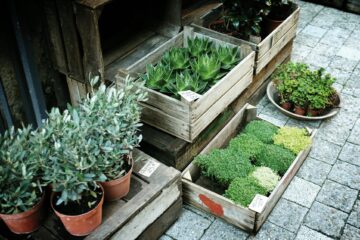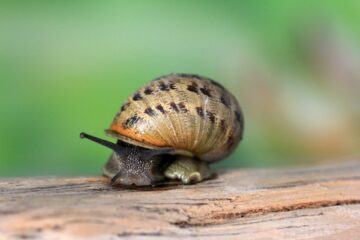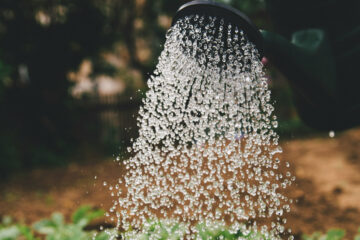If you’re an organic gardener, you care about the environment, animal welfare and your own health. Organic gardening is a way for you to grow plants naturally, without using harmful chemicals. Here are some of the benefits of going organic:
What are the benefits of organic gardening?
Organic gardening is good for the planet, your health, and your wallet.
- Organic gardening is good for the planet: In addition to being more environmentally friendly than conventional farming or chemical-based gardening techniques, organic growing methods also require fewer resources such as water and energy. As an added bonus, it can help you save money on fertiliser costs!
- Organic gardening is good for your health: Studies have shown that eating fresh fruits and vegetables can reduce risk factors associated with heart disease and certain cancers; this has led many people to opt for organic produce over conventionally grown produce whenever possible (especially when buying from local farmers markets).
- Organic gardening saves money: Even if you’re not planning on eating any of your plants’ fruits or vegetables yourself, there are still plenty of reasons why growing organically should be considered an investment rather than just another hobby.
How does chemical-free gardening work?
Organic gardening is about growing plants without using harmful chemicals. It’s a great way to save money, get exercise and enjoy nature.
Organic gardening uses natural methods that are safe for people, pets and wildlife. It also helps protect our environment by reducing pollution from chemical runoff into streams, lakes and groundwater supplies as well as reducing greenhouse gas emissions caused by manufacturing pesticides or fertilisers.
Organic gardening techniques include:
- Composting – making compost from organic materials like leaves, grass clippings and food scraps; you can use this instead of fertilizer in your garden beds; it provides nutrients for your plants while adding organic matter back into the soil which improves its structure so it holds water better than compacted clay soils do!
- Rotating crops – planting different types of vegetables in different areas each season so they don’t compete with each other for nutrients; this also reduces pest infestation because they won’t have time between crops before another crop comes up elsewhere
Why should I use natural gardening techniques for my home garden?
There are many benefits of organic gardening. It can be good for the environment and your health, it saves money, it helps you grow healthier food and it’s fun!
With organic gardening there is no need to purchase harmful chemicals and pesticides that pollute our water supply, harm wildlife and may even cause cancer in humans. Instead of using synthetic fertilizers or harsh weed killers you’ll be able to use natural methods like composting which will improve soil quality while also eliminating pests naturally without harming them or yourself (or anything else).
How can I get started in organic gardening?
It’s easy to get started. If you’re just beginning, start with a small garden and learn how to grow your own food. You don’t have to have acres of land or be an experienced gardener; even if you have only a few pots outside or space on the windowsill, it’s still possible for anyone (even children) to grow plants organically!
The first step is making sure that you have the right tools for the job: gardening gloves, pruners and scissors are essential, and these can be found at any hardware store or online retailer like Amazon. Make sure they’re comfortable enough for long-term use so that they don’t cause blisters during planting season!
Next comes patience; organic gardening takes time–and lots of it! Don’t expect instant results from your efforts; instead try keeping track of how long it takes each plant variety until harvest time arrives so that next year’s growing season will go smoother thanks to experience gained from mistakes made previously… and remember: mistakes happen all too often when learning something new like this but don’t let them discourage YOU because YOU CAN DO IT!!
Chemical free gardening is a good way to take better care of yourself, your family and the planet.
Organic gardening is a good way to take better care of yourself, your family and the planet. Here are some of the benefits:
- Organic gardening is good for you. Studies have shown that organic produce contains higher levels of vitamins, minerals and antioxidants than conventional crops. In fact, one study found that people who ate an organic diet had up to 40% higher antioxidant activity in their blood than those who didn’t eat organically grown foods! That’s because pesticides tend to damage plant cells’ ability to create antioxidants naturally; thus when you eat pesticide-free plants (or drink tea made from them), those antioxidants remain intact.
- Organic gardening helps keep our land clean and healthy by reducing runoff into nearby waterways – which can cause algae blooms that threaten aquatic life–and reduces soil erosion due to rainfall runoff on unprotected fields where chemical fertilisers have been used repeatedly without replenishing nutrients back into soil through composting or other practices such as crop rotation over time periods longer than one year at most if not several years before reusing any particular piece of ground again after harvesting its crops once every few years depending upon how many years old each piece might be based upon how many times per year someone chooses/needs access
In conclusion, I hope you’ve found this article helpful in understanding the benefits of organic gardening. As we saw above, it’s not just about growing plants without using harmful chemicals–it’s also about taking better care of yourself, your family and the planet as well! If you want to get started with a new home garden or learn more about how to grow plants naturally then please check out our other blog posts on this topic before leaving us today.
Keep on top of your gardening with our free online journal
Our free online tool allows you to organise your ideas and garden plans and help you be as efficient as possible in the garden.
Sign up now

